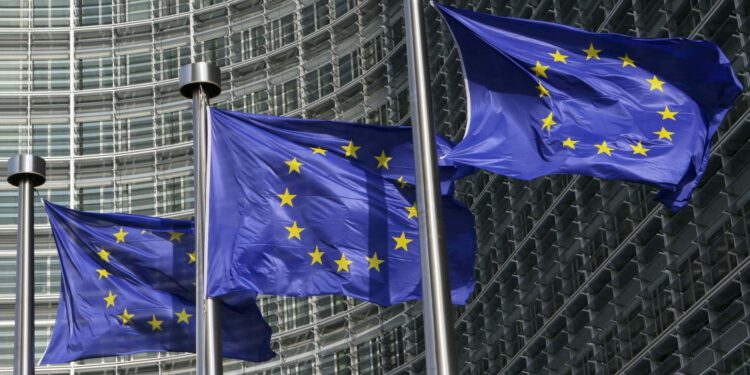European Bitcoin ban not off the table, right?
The uncertainties surrounding the European crypto regulation will have made their contribution to the decline of Bitcoin. The current development in the trilogue negotiations on the crypto regulatory framework MiCa comes at exactly the wrong time. According to a draft, which is available to BTC-ECHO, the environmentally justified ban on proof-of-work services is again on the agenda. The proposal was already in the room in February, but at that time the EU Parliament had decided against it. Now, two demands from the European factions of the Left, Greens and Social Democrats are reigniting the BTC ban debate.
The first proposal concerns a duty to provide information. Crypto whitepapers should therefore contain information on the climate compatibility of a digital currency. The problem: The Bitcoin whitepaper contains no such information and cannot be rewritten afterwards. The proposed law also wants the EU securities regulator to define ”thresholds” for the environmental compatibility of crypto services. Previously, there was only talk of ”guidelines”. The tone consequently sharpens. This is because bans could result from non-compliance with the thresholds. At the time of writing, it was not yet clear whether the three groups had succeeded with their amendment proposal.
Russia Bans Domestic Crypto Payments
At least the fundamental discontinuation of Bitcoin services has not been discussed in Russia for some time. But with the acceptance of cryptocurrencies as a means of payment, the State Duma adopted a ban at first reading last week. The amendment to the existing crypto law defines Bitcoin and Co. as “money substitutes” that are not usable for the purchase of goods and services. The law also introduces the concept of an “electronic platform” for brokers and exchanges, and in the future they will be subject to the supervision of the Central Bank. Anatoly Aksakov, who chairs the Finance Committee of the Russian parliament, is behind the bill. The law still requires the approval of the Federation Council and President Putin. It should be noted that the ban is apparently limited to the Russian interior. Elwira Nabiullina, president of the crypto-skeptical central bank, recently stressed again that crypto payments in foreign trade are quite conceivable.
Korean Bitcoin Exchanges Plan Emergency System
The Terra crash threw the entire crypto space into turmoil. In particular, in South Korea – the homeland of the crashed token – he left a clear mark. As a consequence, the local Bitcoin exchanges have agreed on a common approach for similar debacles. According to a report by the local media Daily Sports, the largest crypto trading venues agreed on voluntary rules last Monday with representatives of the government. These include, for example, a warning system for investors in crypto investments that are particularly risky. From October, cross-exchange guidelines for the listing of tokens will also apply. This is intended to strengthen the confidence of investors. It remains to be seen what effect the new standard rate will have on the profitability of the trading venues.
SEC wants to take action against insider trading
In the USA, too, the Terra crash was apparently noted with concern. After all, there is a presumption that insider trading is behind the collapse. The US Securities and Exchange Commission probably initiated investigations to find out how Bitcoin exchanges are acting against such business practices. According to Fox Business, at least one leading trading venue received a letter with a catalog of questions in this regard. It was unclear last week which exchanges were affected by the investigation. Both the SEC and a number of trading venues did not make a statement to Fox Business. It is therefore also unclear whether the SEC is specifically looking for clues to initiate criminal proceedings. It is also conceivable that it is only about a review of compliance measures.
Panama’s President Blocks Bitcoin Law
Politicians are also diligently working on binding crypto rules in other parts of the world. This is also the case in the Central American tax haven of Panama. Two months ago, the parliament passed a law that gave Bitcoin the status of a recognized means of payment. But now President Laurentino Cortizo blocked the crypto-friendly project with a veto. The reason: lack of measures to prevent money laundering. The president announced his veto plans back in May. However, the initiative is not off the table, Parliament only has to make improvements in some areas.









